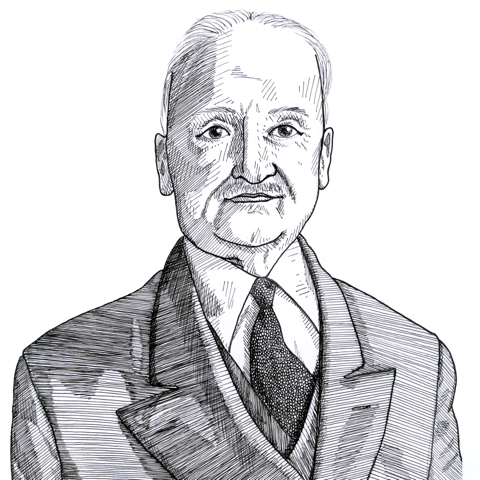
Mises on human action, football, and predicting the future (1966)
Found in: Human Action: A Treatise on Economics, vol. 1 (LF ed.)
The Austrian economist Ludwig von Mises (1881-1973) in a discussion about the difficulties of predicting the outcome of future events uses the example of two football (i.e. soccer) teams the Blues (presumably Italy) and the Yellows (presumably Brazil). If we base our prediction of the outcome on “class probability” then the Blues (Italy) will win; if we use “case probability” then the Yellows (Brazil) will win. When he wrote this edition of Human Action in 1966 the Whites (England) won the tournament:
Sport and Liberty
Two football teams, the Blues and the Yellows, will play tomorrow. In the past the Blues have always defeated the Yellows. This knowledge is not knowledge about a class of events. If we were to consider it as such, we would have to conclude that the Blues are always victorious and that the Yellows are always defeated. We would not be uncertain with regard to the outcome of the game. We would know for certain that the Blues will win again. The mere fact that we consider our forecast about tomorrow’s game as only probable shows that we do not argue this way.
On the other hand, we believe that the fact that the Blues were victorious in the past is not immaterial with regard to the outcome of tomorrow’s game. We consider it as a favorable prognosis for the repeated success of the Blues. If we were to argue correctly according to the reasoning appropriate to class probability, we would not attach any importance to this fact. If we were not to resist the erroneous conclusion of the “gambler’s fallacy,” we would, on the contrary, argue that tomorrow’s game will result in the success of the Yellows.